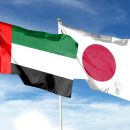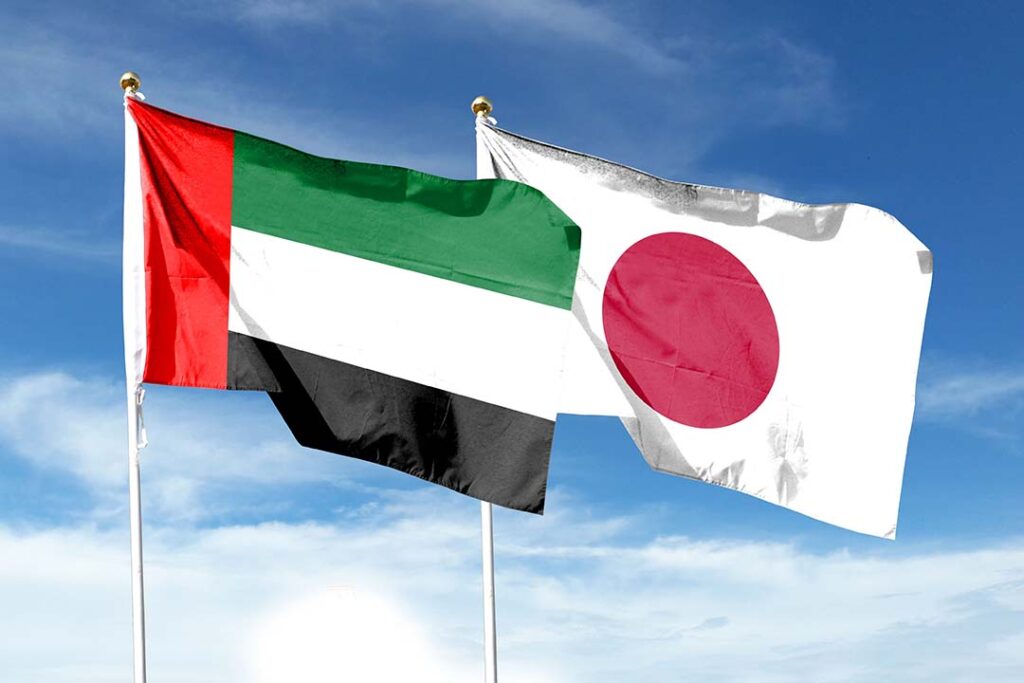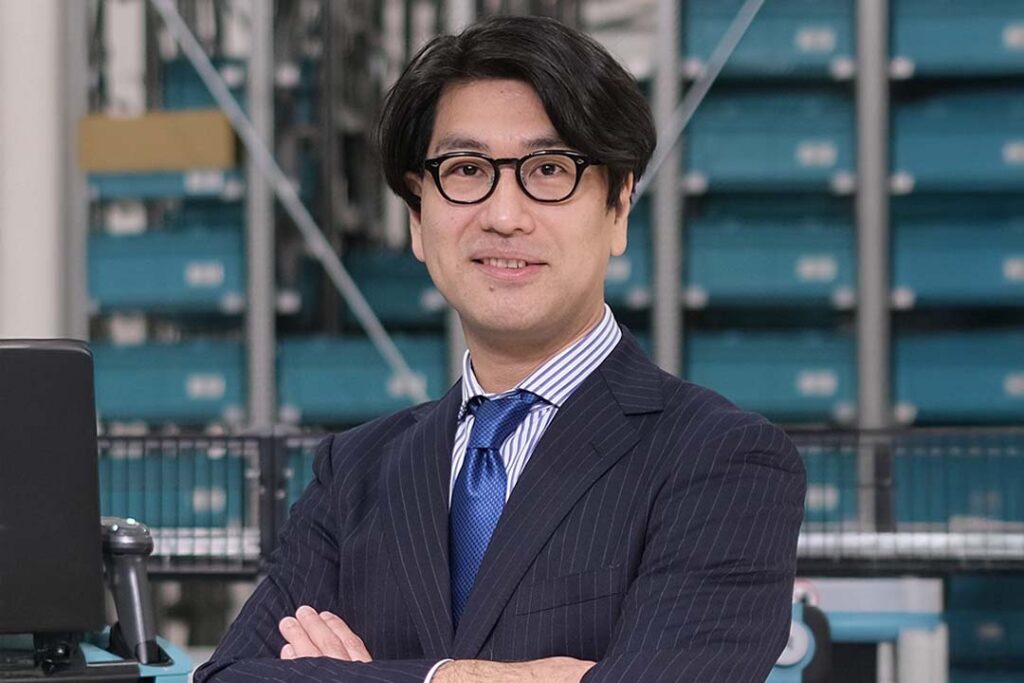Bridges: How attractive is Vietnam as an investment destination and ASEAN headquarters for Japanese companies?
Tran: For decades, Vietnam has been a favorite investment destination to Japanese enterprises, ranking second last year with total investment exceeding USD 60 billion. Global key players in manufacturing, technology, retail and automotive industries, such as Honda, Toyota, Panasonic, Canon and Aeon, have established operations in Vietnam. The financial services industry is also receiving increasing interest from Japanese investors as major Japanese banks (e.g., Sumitomo Mitsui Banking Corporation and Mizuho Bank) have become strategic shareholders in Vietnamese commercial banks.
The year 2020 also marked an important milestone in the bilateral relationship between the two countries when Prime Minister Yoshihide Suga paid a visit to Vietnam. The visit resulted in the two countries’ agreement to deepen their extensive partnership, which is expected to continue and boost collaboration in all fields.
Traditionally, foreign investors pour their capital into Vietnam to be able to access competitive production costs, a strategic location hub in Southeast Asia and political stability. In recent years, there have been a number of free-trade agreements signed between Southeast Asian nations and other global partners, including CPTPP and RCEP, which have provided multinational groups with additional reasons to consider Vietnam as a soaring force to expand their presence in the region. Vietnam has around 12 active FTAs, which serve as an effective catalyst to create a more favorable and sustainable investment environment for foreign enterprises.
Vietnam is also a preferred investment location for foreign investors while they scout to diversify their production chains and shift their supply chain out of other production hubs in an attempt to reduce Japan’s export production activities that are more reliant on other production hubs’ inputs. According to JETRO, in July 2020, 15 of the selected 30 companies under the “Program for Strengthening Overseas Supply Chains” launched by the Japanese government are expanding and investing in Vietnam.i They will receive the fund from the Japanese government to move factories out of China and to Southeast Asian countries like Vietnam, Philippines, Thailand and Laos. This number confirms the attractiveness of Vietnam as one of the most important investment destinations in ASEAN for Japan.
What insights can you share from your experience handling successful cases for Japanese brands and corporations in Vietnam?
One major issue that Japanese businesses may face in Vietnam relates to intellectual property protection. Vietnam applies the ‘first to file’ principle to its trademarks, meaning that if a business has not registered its trademark in Vietnam, but a third party has done so, such business will lose its right over the trademark registered by the third party. The early registration will protect a business’s marks from the filing of similar or identical marks by other parties and infringement. Regaining trademarks is a costly and time-consuming process that can easily be avoided by filing them before launching a business plan in Vietnam.
Even in cases where enterprises have duly registered their mark, enforcing the relevant rights may be problematic, due to the issue of knock-off and counterfeit products. According to the National Steering Committee on Contrabands, Commercial Frauds and Counterfeits, within the third quarter of 2020, the authorities have discovered and handled 63,110 cases of manufacturing counterfeits, representing a 25% rise from the previous year.ii If these counterfeits are of poor quality, they inevitably harm the reputation of the original brand. Otherwise, they illicitly make profit from the true right holder’s reputation. This indicates that not only do enterprises need to obtain valid registration of their trademark, they may even have to designate local experts to monitor the enforcement of this IP right.
The strong tie between Japanese and Vietnamese economies, no doubt, will grow stronger and more substantially in the coming years.
Manh-Hung Tran, Country Managing Partner of Baker McKenzie Vietnam
It is also noted that Vietnam does not currently have a specialized IP court dedicated to adjudicating IP disputes. The majority of trademark infringement cases are currently handled by administrative agencies (police, market management bureaus, etc.), who have the power to impose administrative sanctions such as monetary fines or confiscation of the counterfeit products. This has the advantage of time, as the IP right holder only needs to file a complaint, however, the right holder may not obtain damages for such infringement via this route.
What opportunities has the pandemic offered to the Japan-Vietnam partnership?
PRE-PANDEMIC
As stated previously, manufacturers have been the main focus of Japanese investment in Vietnam so far, primarily driven by competitive labor cost. Infrastructure has also been a major area of investment, as demonstrated by the recent high-profile projects such as the USD 58.7-billion high-speed railway between Hanoi and Ho Chi Minh City, Lines 1 and 2 of Hanoi Urban Railway, Line 1 of HCM City Metro and Terminal 2 at Noi Bai International Airport.
In the past few years, rising household incomes and the strong emergence of the middle class in Vietnam have created opportunities for Japanese retailers and consumer services companies to capitalize on the demand created in a country with over 96 million people. Japan’s top retailers, including Takashimaya, Aeon and Uniqlo, have established stores in Vietnam and may be planning to expand their operation in the country.
Japanese investors are also eyeing commercial and industrial real estate sectors in Vietnam as they are seeking to diversify their investment portfolio. For instance, Takashimaya plans to develop commercial and office space in Hanoi between 2022 and 2025, along with two separate large-scale commercial projects elsewhere in the capital.
DURING AND POST-PANDEMIC
Although the current fourth wave of COVID-19 has disrupted economic activities in Vietnam significantly, GDP for the first half of 2021 grew by 5.64%, with manufacturing and processing driving growth. Over the midterm, a number of factors will continue to accelerate the growth of Vietnam’s economy, such as export and the recent free-trade agreements.
Vietnam’s success in the containment of the first few waves of COVID-19 has significantly enhanced its attractiveness as a low-risk destination for long-term investment in the post-pandemic era.
Manh-Hung Tran, Country Managing Partner of Baker McKenzie Vietnam

In every crisis lies opportunity. The pandemic has shut down parts of the economy, but also opened vast opportunities to others, including healthcare, life science, business transformation, renewable energy and warehousing.
Healthcare and life science services: Recently, Vietnam has received more than 1 million COVID-19 vaccine doses from Japan as a testament to the strong and long historical partnership between the two countries. Prime Minister Pham Minh Chinh also called for Japan’s support in the transfer of COVID-19 vaccine production technology to Vietnam. These, together with the ever-growing attention to universal healthcare demand following the pandemic, reflect promising opportunities in this area. There are investment opportunities across a broad range of subsectors, with a particular focus on the manufacturing of medical devices, pharmaceuticals and vaccines, as well as digital health and the production of personal protection equipment.
Business (digital) transformation: In order to cope with the fast-changing working environment, and to stay ahead of the pandemic wave, we have seen an uptick in businesses investing in tools and resources that can help them to not only adapt to the changes, but also to turn the crisis into an opportunity. Digital transformation is one of the key five cooperation areas between the two countries in the coming years, suggested by Prime Minister Pham Minh Chinh. His counterpart, Japanese Prime Minister Yoshihide Suga, agreed and affirmed that Japan will assist Vietnam in digital transformation and IT development. According to a report conducted by Google, Temasek, and Bain & Co, it is predicted that the Vietnamese e-economy could grow to USD 52 billioniii by 2025, which presents multiple opportunities for investors, start-ups and businesses alike. Furthermore, Mai Tien Dung, minister and chairman of Vietnam’s government office, emphasized the importance of Japan’s support in developing e-government and accelerating strong digital transformation in Vietnam iv.
Agricultural technology (Agtech): The agriculture sector has become an increasingly popular investment area for Japanese companies. A 2019 JETRO survey revealed that up to 70% of Japanese businesses want to expand investments in Vietnam, especially in agriculturev. About 40% of Vietnam’s population is active in agriculture; however, Vietnamese farmers lack adequate technologies and business models to deal with the issues arising from COVID-19 and notably, climate change. The use of Agtech in forms of products, services or applications that come from agriculture will help improve input/output processes. On a national level, the Ministry of Agriculture and Rural Development (MARD) in Vietnam has signed MOUs with developed nations, including Japan, with regard to experiences learned from high technology-based agricultural systems.
Warehousing: The high performance of Vietnam’s export industry, as a result of the recently signed FTAs and surge of e-commerce, particularly during the pandemic, have brought certain challenges to domestic suppliers in terms of warehousing overload, including the shortage of cold storage. Despite this, global and regional manufacturers continue to flock to Vietnam’s market, including Foxconn, which moved some of their iMac and MacBook assemblies from China to Vietnam. In order to enhance and strengthen the supply chain in Vietnam and attract high-quality foreign capital, the government aims to develop its supporting industries, focusing on spare-part manufacturers, industrial zones development and logistics. It has been observed that with its extensive access to real estate for warehousing, Japanese investors and real estate developers might consider expanding into this new market.
Renewable energy: As part of the FDI strategy, Vietnam welcomes investors focusing on high-tech industries rather than the traditional labor-intensive sectors. Japanese firms historically have poured their capital into the energy field, notably renewable energy in Vietnam, and this trend looks to continue for the long-term outlook. For example, in 2020, Tokyo Gas – Japan’s biggest gas distributor – and Marubeni inked an agreement to develop gas-fired power projects in Quang Ninh Province. Likewise, Japan International Cooperation Agency (JICA) has signed a facility agreement in May 2021 to provide up to USD 25 million for an onshore wind power generation project with a total capacity of 144 MW in Quang Tri Province, Vietnam with RENOVA, Inc. – a leading renewable energy IPP developer in Japan – as one of the project sponsors.
www.bakermckenzie.com/en/locations/asia-pacific/vietnam
i Direct dialogue between Vietnamese Prime Minister Phuc and Japanese companies | JETRO Topics – About Us – Japan Externalii http://cand.com.vn/Thi-truong/Hang-gia-hang-nhai-ban-qua-mang-ngay-cang-tinh-vi-621493/
iii VN’s digital economy to reach $14 billion in 2020 – Economy – Vietnam News | Politics, Business, Economy, Society, Life, Sports – VietNam News
iv Japanese expertise to accelerate e-government (vir.com.vn).
v Japanese firms increase investment in Vietnam’s agriculture | Business | Vietnam+ (VietnamPlus).










